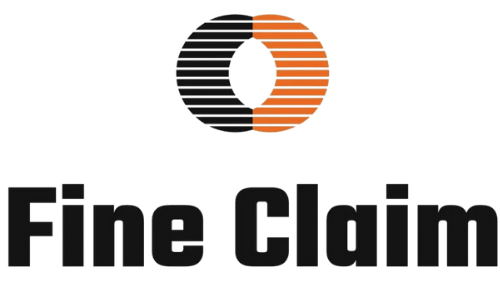What is Revenue Cycle Management?

What is Revenue Cycle Management? A Complete Guide for Healthcare Providers-
In the fast-paced world of healthcare, managing finances efficiently is just as critical as delivering quality patient care. Revenue Cycle Management (RCM) plays a pivotal role in ensuring that healthcare providers get paid accurately and on time for the services they provide.
But what exactly is RCM, and why is it so important? In this blog, we’ll break down revenue cycle management, its key stages, challenges, and best practices to optimize financial performance for healthcare organizations.
What is Revenue Cycle Management (RCM)?
Revenue Cycle Management (RCM) is the financial process that healthcare organizations use to track patient care episodes from registration and appointment scheduling to final payment collection. It encompasses all administrative and clinical functions that contribute to billing, claims processing, and revenue generation.
The goal of RCM is simple: maximize revenue while minimizing delays and denials by streamlining billing, coding, and
payment collection processes. When done effectively, RCM ensures that healthcare providers are reimbursed quickly and accurately for the services they deliver.
Key Stages of the Revenue Cycle Management Process
The revenue cycle consists of several interconnected stages, each crucial for maintaining financial health.
key phases of RCM:
1. Patient Registration & Scheduling
The revenue cycle begins when a patient schedules an appointment. Accurate collection of patient demographics, insurance details, and medical history is essential to prevent claim denials later.
Best Practices:
- Verify-
insurance eligibility before appointments. - Collect-
copays and deductibles upfront. - Ensure-
accurate patient data entry.
2. Insurance Authorization & Verification
Before providing services, healthcare providers must confirm that the patient’s insurance covers the treatment. Missing or incorrect authorization can lead to claim rejections.
Best Practices:
- Automate
insurance verification. - Track
pre-authorization requirements. - Communicate
coverage details to patients.
3. Charge Capture & Medical Coding
After patient visits, medical coders translate diagnoses and procedures into standardized codes (ICD-10, CPT, HCPCS). Errors in coding can lead to underbilling or claim denials.
Best Practices:
- Use
certified coders or AI-powered coding tools. - Conduct
regular audits to ensure accuracy. - Stay
updated with coding regulations.
4. Claims Submission
Once coding is complete, claims are submitted to insurance companies. Electronic claims submission (EDI) speeds up processing and reduces errors.
Best Practices:
- Submit
clean claims with no missing data. - Use
automated claim scrubbing tools. - Monitor
claim statuses in real time.
5. Payment Posting & Adjudication
Insurance companies review claims and determine payment amounts. Denials or underpayments must be addressed promptly.
Best Practices:
- Reconcile
payments with expected amounts. - Identify
and appeal underpayments. - Post
payments accurately to patient accounts.
6. Denial Management & Appeals
Around 20-30% of medical claims are initially denied, often due to coding errors or missing information. Effective
denial management recovers lost revenue.
Best Practices:
- Track
denial trends and root causes. - Implement
corrective actions to prevent repeat denials. - Appeal
unjustified denials quickly.
7. Patient Billing & Collections
After insurance pays, patients are billed for remaining balances (copays, deductibles, or uncovered services). Clear communication improves collection rates.
Best Practices:
- Offer
multiple payment options (online, mobile, payment plans). - Send
timely and easy-to-understand statements. - Use
soft collections strategies to maintain patient satisfaction.
Why is Revenue Cycle Management Important?
Healthcare providers face increasing financial pressures due to rising operational costs, complex billing regulations, and declining reimbursements. An efficient RCM system helps by:
1- Improving Cash Flow – Faster claims processing means quicker payments.
2- Reducing Denials & Rejections – Clean claims lead to higher approval rates.
3- Enhancing Patient Satisfaction – Transparent billing improves trust.
4- Ensuring Compliance – Reduces risks of audits and penalties.
5- Boosting Operational Efficiency – Automation reduces manual workload.
Without proper RCM, healthcare organizations risk lost revenue, increased administrative burdens, and financial instability.
Common Challenges in Revenue Cycle Management
Despite its importance, many healthcare providers struggle with RCM due to:
Complex & Changing Regulations –
Keeping up with coding and billing rules (e.g., ICD-11, HIPAA) is challenging.
High Claim Denial Rates – Errors in coding or documentation lead to rejections.
Slow Payer Reimbursements – Insurance delays strain cash flow.
Patient Payment Collection Issues – High-deductible plans make collecting patient balances harder.
Outdated Technology – Manual processes increase errors and inefficiencies.
Best Practices to Optimize Revenue Cycle Management
To overcome these challenges, healthcare organizations should adopt these proven RCM strategies:
Leverage Automation & AI – Use AI-driven tools for coding, claims scrubbing, and denial prediction.
Train Staff Regularly – Keep billing and coding teams updated on compliance changes.
Improve Patient Financial Engagement – Offer price transparency and flexible payment options.
Monitor Key Metrics – Track KPIs like Days in A/R, denial rates, and collection rates.
Outsource RCM When Needed – Partnering with expert RCM firms can improve efficiency.
Final Thoughts
Revenue Cycle Management is the backbone of a healthcare organization’s financial health. By optimizing each stage—from patient registration to final payment collection—providers can reduce revenue leaks, accelerate cash flow, and enhance patient satisfaction.
Investing in technology, staff training, and process improvements can make a significant difference in maximizing
reimbursements and ensuring long-term sustainability.
Is your RCM process running smoothly? If not, it might be time to audit, streamline, and modernize your revenue cycle
strategy!
Need help with Revenue Cycle Management? Contact us today to learn how our expert solutions can boost your financial
performance!

